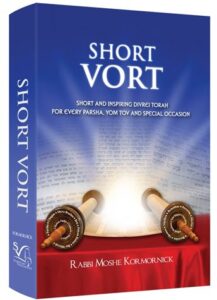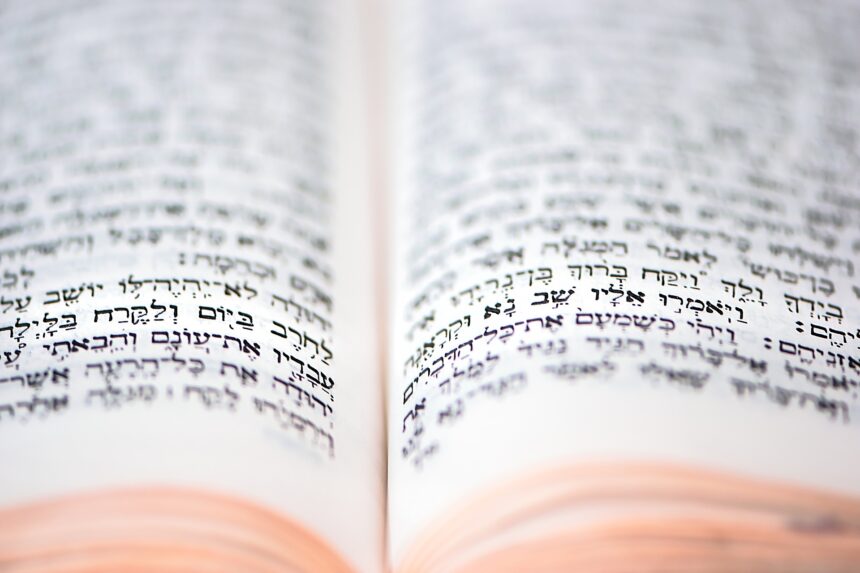Shemos, 35:1-2: “And Moshe gathered all the assembly of the Children of Israel, and he said to them, ‘these are the matters that HaShem commanded, to do them. Six days you will do work, and the seventh will be holy to you, a Shabbas Shabbason to HaShem, whoever does work on it will die.”
Yalkut Shimoni, Vayakhel, 1: “HaKadosh Baruch Hu said to Moshe, ‘Make yourselves into groups, and teach them in public the law of Shabbos…”
The Parsha begins with Moshe Rabbeinu gathering together the Jewish people to command them about the Mishkan. The word used to describe this gathering is, ‘Vayakhel’ which is barely used when describing Moshe’s addresses to the nation. The Torah then continues, before discussing the Mishkan, with Moshe briefly mentioning the idea of Shabbos and the prohibition of Melacha. The Yalkut Shimoni[2] addresses this juxtaposition of a gathering with Shabbos: It explains that HaShem was instructing Moshe to teach the laws of Shabbos to the Jewish people in groups. The question arises why is it davke with regard to Shabbos that the Torah makes this juxtaposition?[3]
One possible approach is that in many aspects, Shabbos is one of the areas of Torah where it is most important to encourage people to learn the laws, and an effective way of spreading these laws, is by teaching groups of people. Indeed, the Mishnah Berurah cites this Yalkut and stresses the importance of teaching these laws at the Seudas Shlishis when people used to eat together. He notes, in a disapproving manner, that this was not the custom in his time.[4] We will analyze a number of reasons why teaching about Shabbos, in particular was emphasized by the Torah.
In his introduction to Chelek Gimmel of the Mishnah Berurah which covers Shabbos, the Mishnah Berurah gives many reasons why one must learn Hilchos Shabbos. Firstly, he outlines different aspects in which flagrantly breaking Shabbos is treated with the utmost severity. For example, the punishment in the time of the Sanhedrin is the strictest type of death penalty[5]. Moreover, there are only two transgressions which cause a sinner to be labeled a mumar lekol HaTorah (heretic of the whole Torah) which has serious ramifications as to his halachic status: Idol worship and breaking Shabbos in public.
In the positive sense, Chazal speak extremely highly of one who observes Shabbos: the Gemara[6] states that one who keeps Shabbos correctly, is forgiven for all of his sins. In addition, Shabbos is described as being equal to all the Mitzvos to the extent that one who keeps Shabbos is viewed as if he kept the whole Torah.[7]
The Chofetz Chaim then goes on to explain that Shabbos is also a yesod haEmunah – a foundation of our belief in HaShem, because it represents our recognition that HaShem created the world. Hence, one who does not keep Shabbos is viewed as if he denied all the Torah, because it indicates that he does not truly believe in the Divine Creation.
He then addresses an attitude that it is enough to know that hashkafic reasons behind Shabbos to be able to properly observe it, but he thoroughly dismantles this approach: He cites the verse in Mishlei: “To know wisdom and mussar”[8], and the Midrash which derives from the verse that if a person has wisdom he can then learn mussar, but if he does not have wisdom, he cannot learn mussar. In the same vein, this means that if a person understands all the beautiful ideas about Shabbos, he still will not be able to properly observe it because he does not know the myriad halachos that one must know in order to avoid unwittingly performing Melachas or Issurei derabanan on Shabbos.
If a person does not learn Hilchos Shabbos it is inconceivable that he will even know what all the situations where Chillul Shabbos may result. One example is that it is not uncommon that a person will perform as simple an action as dabbing some water on a stain on his clothing on Shabbos. This is Assur midoraisa according to all opinions. Another common area where people often do not know there is even a question is Amira L’Akum – asking non-Jews to perform Melacha for Jews on Shabbos. A person who has not learnt these laws may think that it is always permitted to ask a non-Jew to do Melacha but this is most definitively not the case. Moreover, as the Chofetz Chaim points out, if a person does know the details of the laws then he will be able to navigate difficult situations to do them in a permitted way. For example, if a person does not know the laws of losh he may be afraid to mix various foods together, but if he has learnt the halachos he will know that under certain conditions it is permitted.
How can a person begin to approach learning the myriad laws of Shabbos? The Mishnah Berurah itself was written to enable people to learn the basic laws in a clear fashion. However, due to a variety of factors, it is not easy for most people to know the practical halacha just from learning the Mishnah Berurah. There are a number of clear, easy to follow works in English and Hebrew that are very helpful to learn.[9] [1] Daas Shraga, Parshas Vayakhel, written by Rav Shraga Grossbard zt”l, Rosh Yeshivas Ponevezh l’tseirim.
[2] The Yalkut continues to expound that we learn from here, that the community should also be gathered to discuss other laws, in particular the laws of Pesach. See the Ksav Sofer for a fascinating explanation of why the Yalkut began with Shabbos and then also included other laws. [3] In last year’s Dvar Torah (Shabbos and Unity) we offered one answer to this question, focusing on the deep connection between Shabbos and unity. In this Dvar Torah we will take a different but not contradictory approach. [4] Mishnah Berurah, Chelek 3, Simun 290, Sif kattan 6. [5] It is important to note that even in the time of the Sanhedrin it was almost impossible for the death penalty to actually be enacted because of the numerous conditions necessary. Moreover, the punishment was only relevant to someone who understood Torah and Shabbos and who nevertheless fragrantly breaks Shabbos. If someone breaks Shabbos accidentally, he is in the category of Shogeg which required a sacrifice but no other punishment. Nowadays, people who did not grow up knowing Torah are considered to be in the realm of Shogeg by many Poskim. [6] Shabbos, 118b. [7] See Shemos Rabbah, 25:12. [8] Mishlei 1:2. [9] One fairly new sefer that is particularly useful is ‘Learn Hilchos Shabbos in Three Minutes a Day’ by Rav Daniel Braude shlit’a. If a person would like to learn the halachos in a deeper way, there are programs that go through Hilchos Shabbos in depth but presented in a very clear manner – for more information, be in touch with me on: Gefen123@smile.net.il.
SHORT VORT, Rabbi Moshe Kormornick. Published by Adir Press. $9.99 in stores worldwide and online here
Whether you are looking for something meaningful on the Parsha, an uplifting thought for Yom Tov, or have been asked to speak at a Simcha – “Short Vort” is the book for you! With over 140 incredible short vorts packed with stories and valuable life messages, you will never be lost for something inspiring to say.
Rabbi Moshe Kormornick is a popular writer whose words are enjoyed by thousands of readers every week.







